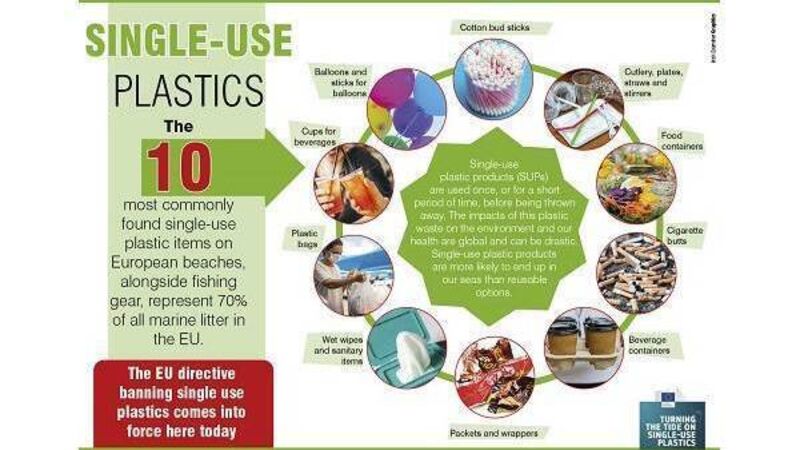Banned from Irish shelves: Cotton bud sticks, plastic cutlery, plates, stirrers and straws

Graphic of single-use plastics that are banned from Irish shelves following EU directive.
A range of everyday items made from single-use plastic such as cutlery, plates, and straws have been banned from Irish shelves.
Under the EU’s Single-Use Plastics Directive (SUPD) from 2019, member states such as Ireland were compelled to introduce measures combatting waste of such items by July 3 this year.
CLIMATE & SUSTAINABILITY HUB













